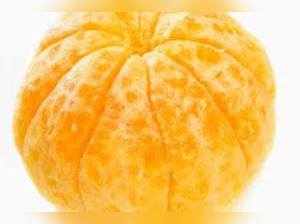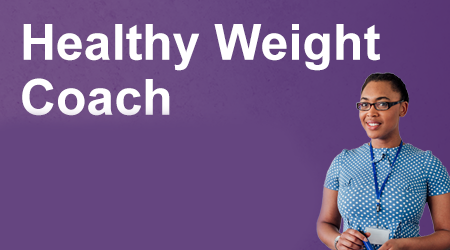
If you're an overweight parent, it's time to look into overweight child diet plans. These statistics are alarming. Overweight children are twice the likely to develop diabetes and heart disease than their fit, thin counterparts. They are more likely to die as a result of their condition than children who are only slightly overweight. It's time to get your child into the best shape possible. Here are some ways to make it easy for you to help your child lose weight.
To begin, consider incorporating more fruits and vegetables into your child's diet. Aim to have three healthy meals per daily, consisting of small amounts of lean beef and large amounts of vegetables and fruits. You should always serve one serving, otherwise your child may not finish the whole meal. Encourage your child not to feel full if they don't eat enough vegetables. Limiting high-calorie foods can be done by limiting them to occasional treats.

Limit television to a few hours per day. It doesn't burn calories and encourages unhealthy eating habits. Your child should eat three meals and two snacks each day. Avoid letting your child skip meals. Keep their snacking limit to two per day. Limit them to low-calorie snacks like raw fruits and vegetables. Avoid high-calorie items like chips, ice cream, and other fried foods.
You should be focusing on weight loss but remember that your child also needs to feel important. This will inspire him to keep going with his weight loss efforts. Remember, he or she needs to feel loved and important and will be happier in the end. A child's overweight diet plan can be used to teach your child that exercising is fun. It will be amazing how much healthier your child will be if you make it fun for the whole family.
Children who are overweight should be encouraged to exercise. Physical activity will encourage them to be active and make changes in their eating habits. It's a great way for your child to make changes in their eating habits by increasing their physical activity. They will be happier and have healthier eating habits. Your child will also see you as a role model if your weight is high.

Sugary snacks should be avoided by parents. They should not allow their children to have sugary snacks. You will end up with a stuffed and unhealthy meal. Instead of giving them sweets or candy, reward them with stationery and a good grade. You should ensure that they get enough sleep. Overweight children require more sleep than their non-obese counterparts. There are different recommended sleeping habits for different ages.
FAQ
What dietary supplement is best for weight loss?
Losing weight requires both diet and exercise. Some people find certain supplements helpful.
Many studies show that omega-3s may help you lose weight. Omega-3 fatty acids are essential fats that are vital for brain function, cell membrane integrity, and other functions. They're found in seafood like salmon, tuna, shrimp, and cod liver oil.
Another study suggests that green-tea might help with weight loss. Green tea has catechins, which are antioxidants that can help increase metabolic rate and encourage weight reduction.
Is Egg good for man?
All the nutrients that the body needs are found in eggs. It also helps maintain strong bones, a healthy heart and lungs, and stable blood pressure.
Eggs are rich in protein, vitamin A, B12 and D,E,K, as well as vitamins A,B12 and D,E,K, calcium, iron, phosphorus, manganese, copper, magnesium, and riboflavin.
The egg yolk is high in cholesterol. However, the egg yolk is low in cholesterol. Eggs have less saturated fat than many other foods.
In addition, they are low in sodium and calories. They are very versatile and can be cooked any way you'd like. You can fry, poach, scramble, boil, hard-boil, and bake them.
They are very nutritious and easy-to-prepare.
At least two whole eggs should be consumed each day. You don't have to eat eggs.
Essential nutrients are provided by eggs. Add eggs to your diet today.
Do I have the obligation to exercise every day or just on occasion?
No! You should do at least 30 mins of moderate-intensity activity 5 days per week. It means you need to exercise hard enough or walk fast enough that you are slightly out-of- breath.
Are There Any Benefits Of Doing Yoga?
Yoga has been popular since ancient times. Yoga is now very fashionable among celebrities and everyday people who want to look and feel good.
Yoga is great because it strengthens your muscles as well as stretches them. Yoga can also help calm your mind and relax you.
Yoga is more focused on breathing than other forms of exercise.
For balance and flexibility, there are many poses you can do.
Statistics
- According to the American Heart Association, blood pressure should be checked at least once every two years, beginning at age 20. (my.clevelandclinic.org)
- An estimated calorie range for moderately active adult males falls between 2,200 to 2,800 calories per day, depending on age. (eatright.org)
- 10 pounds in a month is likely during a lean bulking phase, especially for beginners. (muscleandstrength.com)
- According to the American Academy of Dermatology (AAD), men over 50 are at a heightened risk of developing it. (healthline.com)
- By John Thompson Take a whopping 38% off a set of PowerBlock Pros. (menshealth.com)
External Links
How To
How can I burn fat while exercising?
Exercise burns calories by increasing metabolism and oxygen consumption.
If you exercise with moderate intensity, you can safely lose weight.
These are some tips to help you lose fat while working out:
-
Do cardio exercises such as walking, swimming, jogging, cycling, running, or elliptical training.
-
For 30 minutes, do it three times a week.
-
You can add strength training into your exercise routine if you're looking to lose even more weight.
-
Avoid doing intense exercises. It is possible to build muscle without destroying muscle tissue.
-
During exercise, drink plenty of water. Water flushes out toxins, and keeps your body properly hydrated.
-
After exercising, you should drink low-fat protein drinks. Protein shakes can help boost energy and repair muscles.
-
Eat smaller meals throughout the day, so you don't feel hungry between meals.
-
Don't skip breakfast! Skipping breakfast can leave you feeling tired and sluggish.
-
Take care of your mind. Stressful situations can slow down metabolism.
-
Keep a positive attitude. Research shows that overweight people gain more weight if they believe they are overweight than those who believe they look good.
-
Get enough sleep. A lack of sleep makes it difficult to lose fat.
-
Always be active. Be sure to get up and move around every hour or two.
-
Maintain a healthy diet. Eat right to feel satisfied and full for longer.
-
Find ways to relax. An anxious mind won't allow your body release stress hormones, which can lead to the destruction of muscle tissue.
A balanced diet is one that includes all of the essential nutrients required for growth.
You should eat six small meals per day rather than three large ones. This gives your body time and energy to process the food.
You need about 500 milligrams of calcium daily to maintain strong bones. Calcium is found in dairy products like yogurt, fortified milk beverages, orange juices, cereals and bread.
Calcium can be found in leafy green veggies, beans, tofu and nuts as well as seeds, nuts and cheese.
Vitamin D is required for calcium absorption. Vitamin D is found in eggs yolk, fatty fish and fortified foods.
Vitamin E plays an important role in skin health. It can be found as a vegetable oil, wheat germ, peanuts or almonds.
Your body requires zinc to function normally and for wound healing. Zinc is found in oysters, legumes, meats, whole grains, and seafood.
Zinc deficiency could cause fatigue, nausea, vomiting, and depression.
Consuming too much sugar can cause insulin resistance. This causes an increase in blood glucose levels. Insulin resistance is linked to weight gain.
When there is a high level of free radicals, insulin resistance can develop. Free radicals are molecules containing unpaired electrons which cause damage to cells membranes.
The main sources of free radicals are food additives.
Free radical damage can lead to cancer, heart disease, diabetes, arthritis, asthma, and aging.
A well-balanced diet rich in antioxidants is the best way for you to avoid free radical damage. Antioxidants protect against oxidative damage.
Antioxidant vitamins include Vitamin C (found in citrus fruits), beta carotene (found in carrots, sweet potatoes, spinach, broccoli, cantaloupe, apricots, squash, mangoes, peaches, peppers, tomatoes, cabbage, cauliflower, kale, Brussels sprouts, collard greens, watermelon, and strawberries), and Vitamin E (found in nuts, olive oil, avocados, and eggs).
Selenium, copper and manganese are all antioxidant nutrients.
Selenium protects cells against oxidative damage from free radicals. Selenium can be found in Brazil nuts and liver, kidneys, liver, kidneys, shrimp, cod, turkey and lamb as well as chicken.
Copper protects the brain, eyes, lungs, and red blood cells. Copper can be found in shellfish and poultry as well as meat and organ meats.
Manganese is essential for bone structure. Manganese can be found in brown rice and spinach as well as bananas, prunes raisins, oatmeal, lentils, and oatmeal.
Zinc is important for healthy growth, reproduction, and wound-healing. Zn is found in lean cuts of meat, white fish, poultry, and eggs.